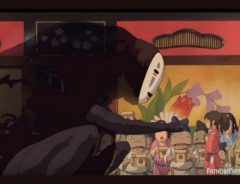
Source: beauty-box / © PIXTA
Japanese authors of works with film adaptations jointly condemn sexual abuse in movie industry
- Tags:
- Film / Mariko Yamauchi / movie industry / original authors / sexual abuse / sexual violence / statement
Related Article
-

Fullmetal Alchemist Anime Director Criticizes Live Action Film’s All Japanese Cast
-

Cat Watches In Shock As No-Face Piggy Bank Swallows Up Coins
-

One Scene In New Pokémon Movie Has Fans Going Crazy
-

Spirited Away To Screen In Over 400 U.S. Theaters In December For 15th Anniversary
-

Otaku Coin: The Cryptocurrency That Could Save the Otaku Industry – Interview (Part 1)
-

Studio Ghibli’s Kiki Returns As 17-Year-Old Schoolgirl For Cup Noodle Commercial


As reported in a number of weekly magazines, on April 4th, 2022, several women testified that they were pressured by Japanese cult film director Sion Sono, most recently known for Prisoners of the Ghostland (2021), to have sexual relations with him in exchange for roles in his films.
In March, similar accusations were also made by several women against Hideo Sakaki, an actor and film director, as well as actor Houka Kinoshita.
Original authors against sexual violence in the film industry
On April 12th, 2022, writers 山内マリコ Mariko Yamauchi and 柚木麻子 Asako Yuzuki, in a statement also endorsed by numerous fellow female Japanese writers whose works had been adapted to film, released a statement entitled "As original authors, we demand the eradication of sexual violence and sexual assault in the film industry."
Yamauchi's novels such as 「ここは退屈迎えに来て」It's Boring Here Pick Me Up, 「あのこは貴族」Aristocrats and 「伊藤くん A to E」 The Many Faces of Ito have been made into movies.
In the statement, Yamauchi and Yuzuki wrote "As authors, nothing can replace the happiness we feel when our stories are projected on the screen."
However, they also emphasized their responsibility as creators of the story.
A summarized version of their statement is translated below:
Yamauchi and her colleagues also expressed their intention to "make appropriate demands from the contract stage, and in the event of any damage, to take action to seek appropriate measures."
Connected to the publishing industry
The statement also noted that the problems facing the film industry are also connected to the publishing industry.
The authors expressed their "repentance and regret that (members of the industry) have not stood up to eradicate sexual harassment in the publishing world until now," and expressed their strong will to do so going forward. Moreover, they added: "We must also be aware that we ourselves can be perpetrators of harassment."
The writers who endorsed the statement are as follows (in alphabetical order by family name):
Mariko Yamauchi: "I had to take action"
After issuing the statement, Yamauchi expressed additional thoughts on her Twitter account, saying: "Novelists are often left out of the loop when their works are made into films, or they have very few opportunities to voice their opinions directly (...) but after the series of reports of sexual assault, I thought I had to take action."
She concluded by saying: "I hope from the bottom of my heart that something will change now."
The statement, as well as Yamauchi's Tweet, elicited numerous comments, such as:
The courage of the 18 original authors who spoke up is admirable.
Let's hope that this statement will have a positive impact not only on the film and publishing industries, but on many other industries as well.